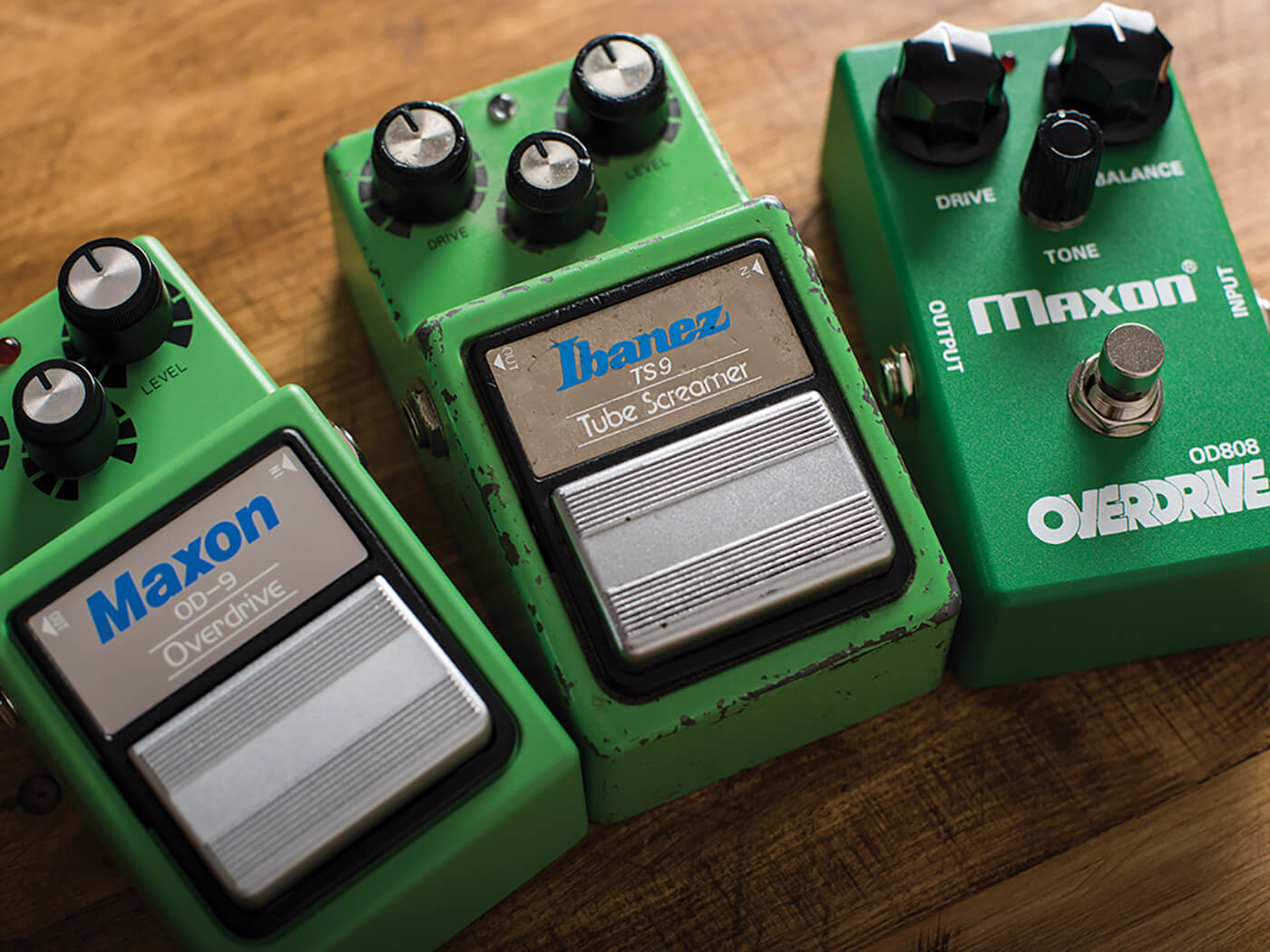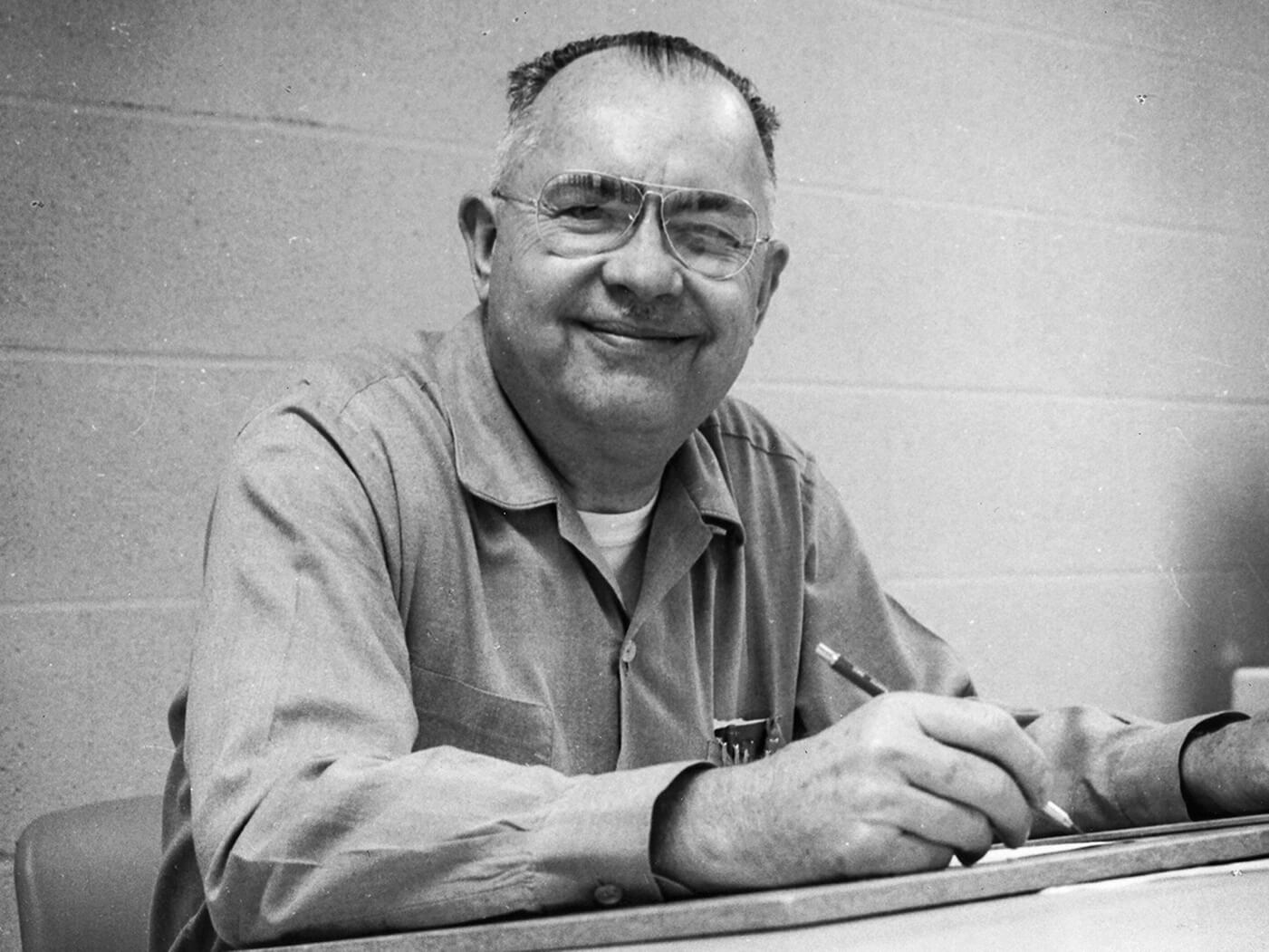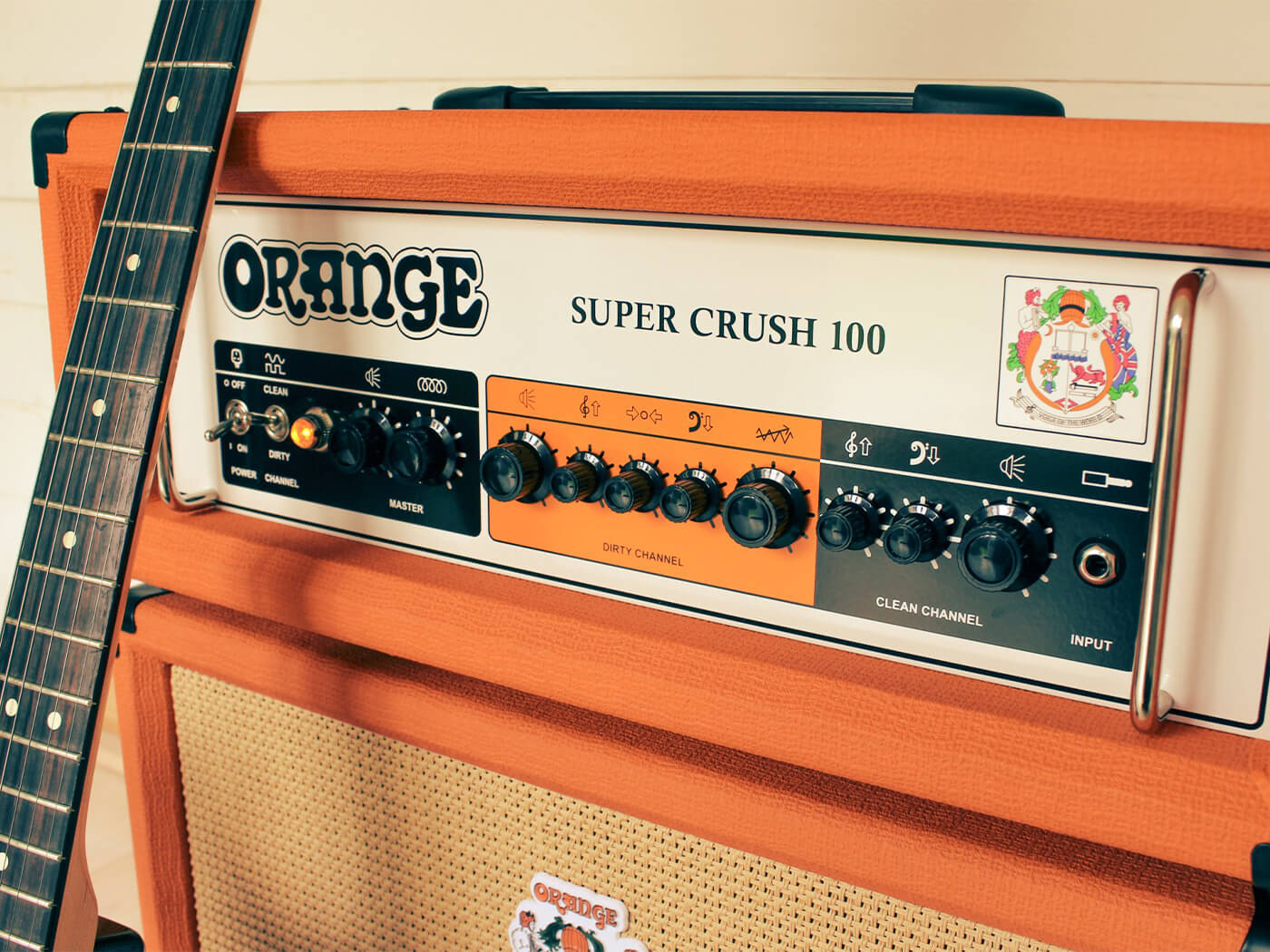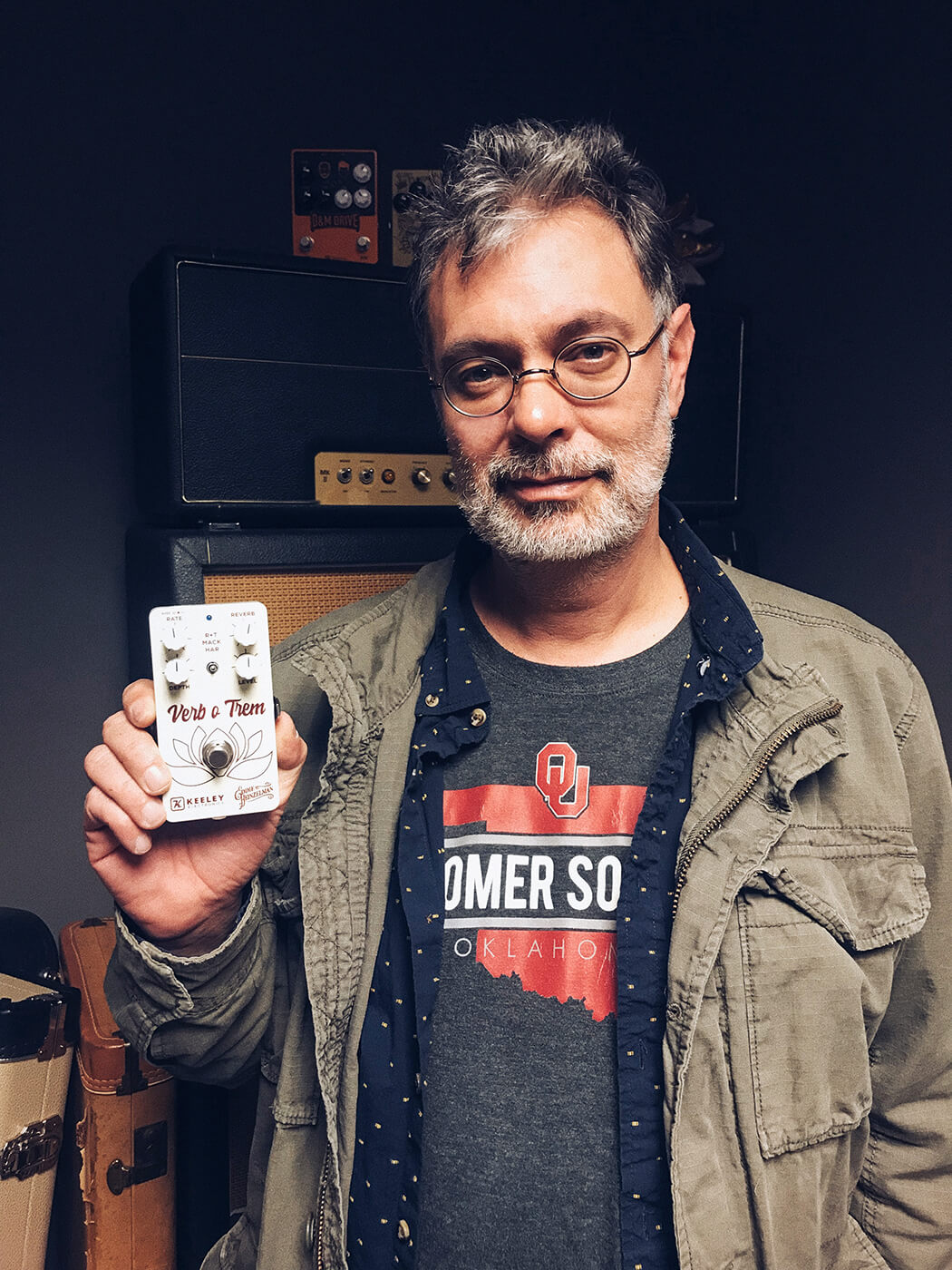Related Tags
Cause & Effects: Is the guitar world guilty of unduly revering past pioneers while ignoring modern day innovators?
Are we so busy venerating the guitar industry’s past achievements with hagiographic admiration that we forget about all the great leaps forward we’re seeing in the modern day?

Maxon and Ibanez Tubescreamers
In any field of human endeavour you will naturally find a huge degree of reverence and respect paid to the early innovators in that enterprise. Often these people are the first ones to come up with an idea or concept, but just as often this isn’t the case. In fact, in many cases the real love is metered out to the big personalities, the game changers, the people who made an epoch defining change in a field of iterative effort and were smart enough to shout about it.
But guitar is often defined by this reverence of a perceived ‘Golden Era’ – a time where received wisdom says that all the best ideas and products were invented or perfected, and any deviation from these benchmarks is somehow getting away from the ‘source’.
In many cases, they may have a point – go play an early 60s Strat and tell me there’s anything that needs changing about that – but sometimes it feels like we’re so keen to venerate the achievements of the past, we ignore the huge leaps and bounds that modern day visionaries have brought to our world. Is that really fair?

The big guns
It’s hard to discuss guitar without certain big names popping up – the likes of Leo Fender, Les Paul, Ted McCarty and (more recently) Paul Reed Smith are often held up as innovators of the modern six-string. On the amp side, the likes of Leo Fender (again), Dick Denney, Jim Marshall, Cliff Cooper and Randall Smith are similarly feted.
But how many of these people actually came up with the ideas that changed music? The likes of Cooper and Marshall owned Orange and Marshall respectively and are doubtless legends for the marketing genius that made them household names, but they never actually designed the products. In Marshall’s case those first amps were designed by Ken Bran and Dudley Craven, while Mat Mathias (of Matamp fame) was the man behind the first Orange amps, and Adrian Elmsley has taken on the mantle in recent years. Meanwhile there’s been huge debate as to how much input Les Paul really had in the guitar that still bears his name, and we know that Bill Carson, George Fullerton and Freddie Tavares had significant input in the design of the Strat.
In short, the person taking many of the plaudits often isn’t the person who actually did the hard work in the first place.

What about pedals?
The further we seem to drift away from the guitar itself, the less revered the innovators are – the amp guys are less famous than the guitar guys, and the pedal guys are even more obscure. It’s the case to such a degree that someone like Gary Hurst is vanishingly rare in our world, because people actually know that he was responsible for designing the Tone Bender! Most of the other effects innovators of this period are all broadly anonymous or completely lost to the sands of time, and in the decades following only the odd name – Mike Matthews, Pete Cornish, Jeorge Tripps – have really gained a lot of fame, and even then in some cases the actual engineers behind some of these designs are hard to find.
Consider Howard Davis, who invented the Deluxe Memory Man, or Susumu Tamura – the man behind the most important and replicated pedal of all time, the Tube Screamer – they might be legendary in the uber-geeky world of pedal builders, but their names are not held in much regard by the general guitar public.
You might sense a little indignation in my tone, and it’s true – I’d argue that the DMM and Tube Screamer are epoch-defining inventions in the history of modern guitar, and without them the entire course of modern popular music might look very different. Anyone who is anyone has used one or both of these pedals in their career, and together they’re responsible for the sound of countless platinum-selling records. The names of Davis and Tamura should be mentioned more in the conversation of great guitar innovators than they currently are.

Landscape shifts
So why don’t these pedal pioneers get the credit they deserve? Well, I have a theory. The reason that certain musical pioneers have become celebrated to the degree that they have is because the change that their inventions brought to music was so seismic that even the man in the street would notice.
The proliferation of electric guitars in the 50s changed the entire scope of pop culture, while the desire for more volume and more power led to the amps of the 60s and early 70s becoming instantly recognisable furniture in the background of some of the most culturally impactful moments in music – The Cavern Club, Shea Stadium, Woodstock and beyond.
Perhaps with the exception of the earliest dirt pedals, the impact of pedals has been no less important, but perhaps less overtly landscape-shifting. They made sounds available to guitarists that spawned whole new genres of music that would not have been possible without them, but their impact is less obvious to the aforementioned man in the street.

The not so quiet revolution
The impact of effects might not have been as loud as the electric guitar or the Marshall stack, but in many ways the change these little boxes wrought on guitar was deeper and more long term in its ultimate effect.
As such, I think the effects pioneers have a different story to tell, one that’s rooted in evolution rather than revolution. Effects pedals have become part of what makes the modern electric guitar so versatile that it can cover a multitude of genres seamlessly. Do the designers deserve the same reverence as the earliest guitar and amp designers? If we are honest, maybe not, but their story does deserve to be told and possibly with much more of a focus on the impact their work has had versus the obsessive geekery of electronic design fundamentals. I think I may have to approach this subject soon, just for the fun of it…
For more features, click here.
